How to choose your Bluetooth tracker?
If you want to choose the right tracker tag, you must first know a few things about it. Indeed, it is a very useful accessory that can be very useful in some cases and not at all in others.
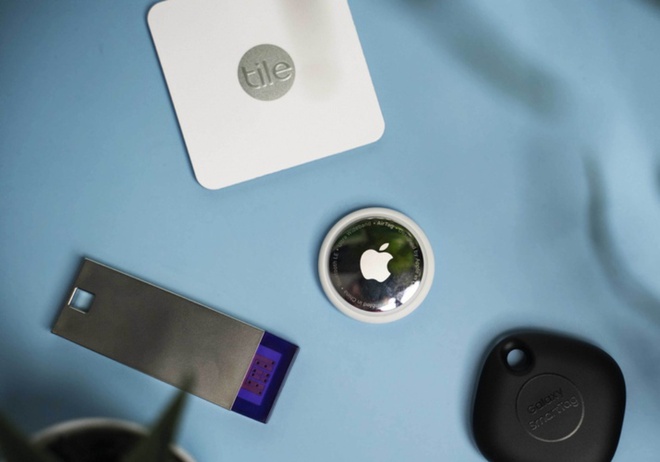
Reading time : 6 min
If you are reading this article, you are probably the type of person who often has to go through the whole house to find their purse, keys or wallet. That stressful moment where you just don't have the time to look through all your house for your car keys. Then, a keychain tracker is definitely made for you.
Discover in this article how this type of small GPS tracker works, the technology behind it, but also in which use cases it will be most useful to you. All you need to know to choose the best GPS tracker depending on your needs.
SUMMARY
The purpose of Bluetooth trackers
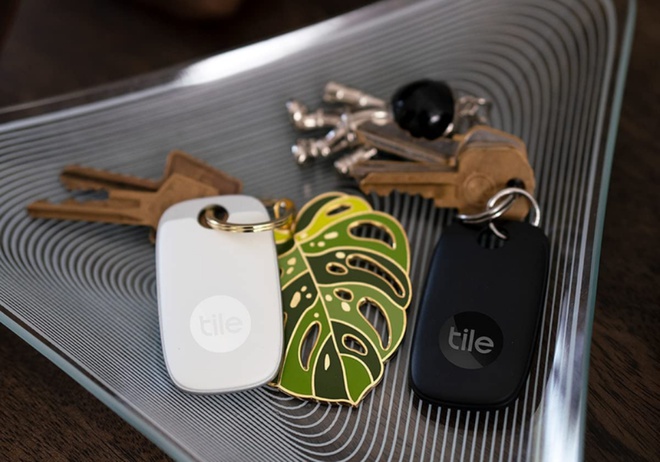
Tracking tags or Bluetooth trackers don't have a SIM card nor a GPS chip like conventional GPS trackers. Thanks to Bluetooth technology, they require less energy and are as small as an ordinary keychain. However, there are some limitations, as explained below.
Locating your keychain tracker
How it works is quite simple: the keychain tracker or Bluetooth tracker has a built-in Bluetooth chip enabling a maximum signal range of 164 ft. (50 meters) between the transmitter (the tracker) and the receiver (your phone). The GPS tracker sends this signal directly to your phone and you can locate it within close range.
The main drawback is the maximum range of 164 ft. (50 meters), especially since it's only effective in ideal conditions, which means: a clear environment, without obstacles (such as a wall). Today, most recent Bluetooth trackers can sometimes go up to 262 ft. (80 meters) in range (in the best conditions).
The Crowd GPS concept
How it works
As mentioned above, the biggest drawback of this type of tracker is its maximum range of 164 ft. The Crowd GPS concept was introduced to overcome this drawback. This concept called Crowd GPS relies on everyone who has the same Bluetooth GPS receiver. Each person passing near the Bluetooth tracker will update the GPS position of your tracker thanks to the Bluetooth and the GPS of their own smartphone.
Of course, the problem is the size of the community. In a big city like Paris, this type of tracker will be much more likely to work than in a village of 300 inhabitants. There are many requirements for this type of Bluetooth tracker to be truly efficient. It's actually more of a gimmick than a real tracking and monitoring device.
Apple’s Airtag
Apple's Airtag uses the large community of iPhones owners around the world. These tracking tags work by relying on the Bluetooth of the iPhones in our cities. Therefore, the Airtag is perfect to find keys, wallets or handbags.
However, for any other use (finding your dog or cat, tracking a car or a bike) it is better to use the appropriate products. We recommend choosing the right trackers for the right use. Here are some examples of brands for each use: Invoxia for cars, motorcycles and bikes, Apple or Tile for your keys, or Weenect for your pets, Garmin to find an animal in a dense forest with trackers working on radio frequency.
Pros and cons of a Bluetooth tracker
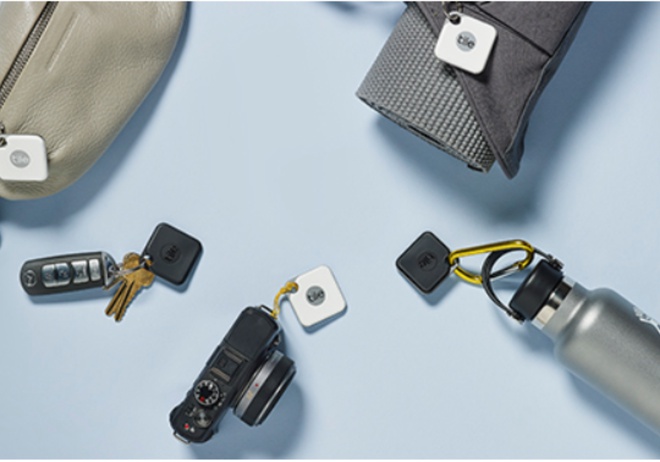
Pros of Bluetooth trackers
The main advantage of Bluetooth trackers is that they provide a very accurate location within short range. This is especially true with the "hot and cold" system of the Airtag for example. This highly accurate geolocation will help you easily find your car keys, or your key ring in your apartment with over 95% reliability.
They’re also water-resistant, often boasting an IP68 rating, and feature removable batteries or rechargeable ones, offering extended battery life with minimal effort. Trackers from Tiles, Apple, or even Tracki GPS connect smoothly via phone-to-tracker apps. These offer real-time tracking, customizable alerts, and intuitive app functionality for daily use. Their growing popularity as tech gifts lies in their balance of design, performance, and affordability, combining function and style in a compact, useful device. These valuable features and price spread appeal to both tech lovers and pet owners looking for smart tracking solutions.
Another benefit that Bluetooth trackers possess is their diverse nature. In other words, different devices offer different services/suit different needs. For example: Chipolo Card Spot and Chipolo One are ultra-thin and waterproof, which serves as the perfect function for wallets or keys. If one is looking for more range, they can get their hands on a Tracki GPS or Landairsea 54, which offer much broader coverage. Or, if you only own a Galaxy device, then the Samsung SmartTag2 will come handy for you.
Cons of Bluetooth trackers
While Bluetooth trackers offer convenience, they also raise growing privacy concerns. Some devices lack proper ID verification, leaving users vulnerable to unassigned trackers being used for misuse or even stalking. To address this, brands have introduced anti-stalking features like scan and secure systems and real-time notification alerts when an unknown tracker is following someone. These safeguards are essential to prevent abuse and ensure the security of customer information.
Consumers should also be aware of potential data breaches, especially with low-cost or poorly regulated models. Without strong data privacy policies, there's a risk of personal location data being exposed or sold, sometimes resulting in lawsuits. Choosing a Bluetooth tracker with transparent privacy standards and a commitment to user protection is key to maintaining peace of mind.
Things to check before buying a GPS
18 questions you need to ask yourself before buying a GPS tracker for your loved ones!
A list of keychain trackers
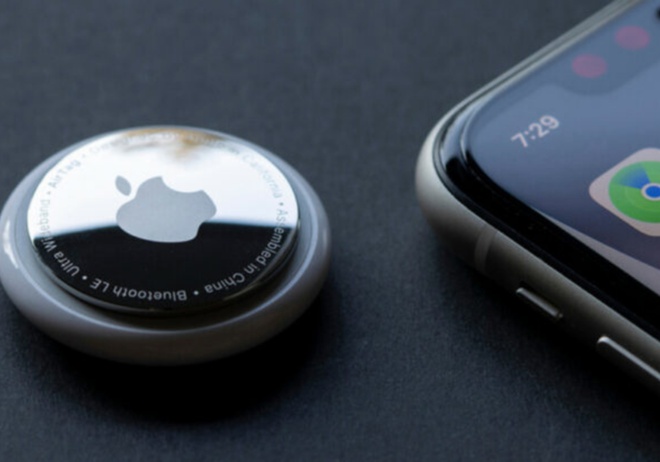
Tile Mate
At under $24,99, the Tile Mate keychain track has a 12-month battery life, it's water resistant and can play a ringtone to make it easier to find. The maximum Bluetooth range is 45 meters in an open environment.
Nutale, the object tracker
More stylish than its competitors, it will cost you about $24,99. Each tracker has a 10-month battery life. You can buy it by pack of 4 so you can attach it or fix it on different objects. The app helps you locate each object easily.
Apple Airtag
Apple's famous Airtag will cost you $29 both in stores and online. You can use both the app or SIRI voice assistant to find your lost objects in seconds. Its greatest asset is the large iPhone community that better maps the territory and makes it easier to locate trackers. The Airtag has a one-year battery life. Its oval shape is elegant and exclusive. It can be customized with a free engraving on purchase.
However, expect to pay an additional $35 to Apple for a leather keychain, case or other. This is an essential accessory, as the Airtag alone cannot be hung anywhere, it can only be slipped into a bag. Locating objects will be a breeze for iPhone users with Airtags. But it has a very limited range of about 32 ft. indoors.
When should I use a Bluetooth tracker?
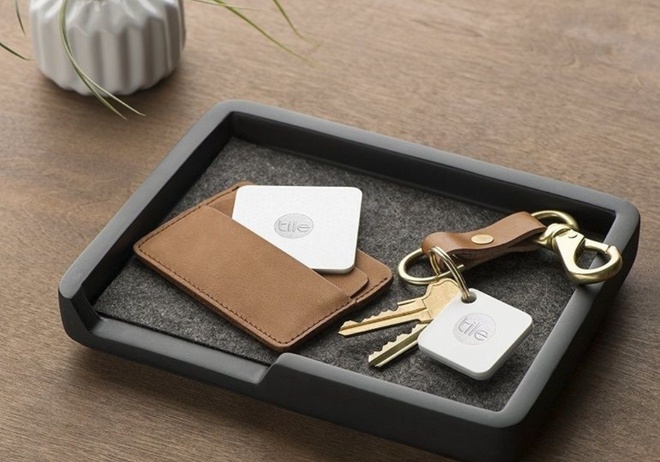
To find everyday objects
To find your keys, or your wallet, a Bluetooth tracker like an Airtag or a Tile tracker will be perfect for the job. Apple's Airtag, Tile's Tile Mate or Samsung's Smart Tags are great as tracking tags. Very convenient to carry around with you hanging on your keys or slipped into your handbag.
All these products have a built-in ringtone that will help you find your phone that has fallen behind your sofa. Bluetooth provides location within a limited range, as it requires the support of a community to allow location over 164 ft. (50 meters) away. This technology is perfect for everyday objects but not for tracking a bike or a living being for example. In such cases, you will need to buy another type of GPS tracker.
To find a lost pet
Be careful, it is not recommended to attach a keychain tracker to your pet's collar. Indeed, Bluetooth trackers are completely useless to find a lost pet. A lost dog or cat is often panicked, scared and will move around quickly. A GPS Bluetooth tracker for dogs or cats must be able to locate them in real time and more importantly without any range limit (which Bluetooth trackers do not provide).
A Bluetooth tracker is more of a gimmick than a security device. It requires too many conditions to properly work, making it useless to find a lost pet.
Conclusion
Bluetooth GPS trackers or keychain trackers are more of a gimmick than a safe tracking device. Indeed, too many conditions must be met for it to work properly. On the other hand, it allows you to find everyday objects and avoid wasting time looking for your keys or your phone before leaving your home. This type of tracker can make your life much easier and avoid unnecessary frustrations thanks to accurate GPS location.
Continue reading our guide
This article is part of a complete guide on the subject. Do not miss the next chapters.
Are you looking for the best GPS tracker ?
18 questions you need to ask yourself before buying a GPS tracker
